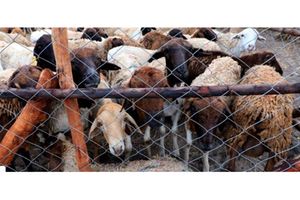Prime
What the agriculture insurance consortium means for farmers

Agriculture Minister Hussein Bashe (centre) launches agriculture insurance consortium in event held in Tabora Region, recently. PHOTO | COURTESY
What you need to know:
- The availability of affordable crop insurance coverage means farmers will no longer need to worry about incurring losses due to adverse weather conditions
Dar es Salaam. The government, in collaboration with agriculture and insurance stakeholders, has launched the Tanzania Agriculture Insurance Consortium (TAIC), aimed at protecting farmers against risks and uncertainties surrounding their agricultural activities.
The move aims at encouraging agribusiness and minimising losses caused by the impacts of climate change such as severe droughts, floods, pests and diseases, and therefore maximising efficiency.
The government is committed to supporting the consortium through insurance schemes that will be designed for selected strategic crops.
TAIC is expected to gain economies of scale and offer insurance services to many farmers in rural areas at an affordable cost.
Formed by 15 insurance companies, TAIC targets registering five million small, medium, and large-scale farmers. The farmers will be offered insurance cover for their food and cash crops such as maize, rice, tobacco, cotton, sunflower, coffee, and livestock.
The consortium will ensure that insurance companies join forces (capital and expertise) in order to provide affordable insurance coverage and procedures that will attract the involvement of the majority of Tanzanian farmers.
Speaking to The Citizen yesterday, Agriculture and Climate Risk Enterprise (Acre Africa) country manager Christopher Mazali said the consortium will be managed and run by the Tanzania Insurance Association (ATI) in partnership with Acre Africa Limited and Tanzania Reinsurance Company (Tan Re).
Mr Mazali said farmers are facing different challenges, including price fluctuations, unpredictable weather, and disasters due to the negative effects of climate change, noting that most of them remain poor due to a lack of insurance coverage.
According to him, many insurance companies are reluctant to engage in providing insurance cover in the sector due to insufficient capital and expertise.
He said it is expensive to reach farmers because most of them are scattered and carry out their businesses on a small scale.
Designing the products
“Natural disasters can affect the majority of farmers, making it difficult to issue compensation due to the lack of reliable data required for developing insurance products in the sector,” he said.
“We are planning to design different insurance products that will protect farmers from price fluctuations and increase the scope of farmers who will qualify for loans from financial institutions through individual guarantees,” he added.
Disbursed loans, according to Mr Mazali, will enable farmers to procure modern agriculture inputs, technology and machines that will enable them to increase the size of their farms as well as their yields.
A recent study shows that the agriculture sector loses an average of $140 million annually to drought.
The study was carried out in 2022 by the Institute of Finance Management and the Tanzania Insurance Regulatory Authority (Tira) under United Nations Development Programme (UNDP) financing.
According to the study, over 20 percent of livestock are currently exposed to risks and about 12 percent of the country’s GDP is affected annually by drought.
The performance of the insurance market published by Tira in 2019/20 indicates that agriculture attracted Sh1.3 billion in insurance, which is equivalent to 0.17 percent of the total traded insurances.
The low contribution was attributed to farmers’ limited ability to afford insurance premiums as well as poor technology and infrastructure for the effective operation of insurance in the sector.
The unavailability of agriculture information, which is required during insurance registration, was another challenge outlined by the study.
At the launch of the agriculture insurance consortium in Tabora Region, Agriculture Minister Hussein Bashe said the sector was facing different challenges, including the imminent impacts of climate change and price fluctuations.
He said designing insurance products was something that should be recommended and emphasized.
“The government will add funds to the consortium in order to realise its intended goals and enable farmers to reap benefits,” he said.
He challenged stakeholders to come up with mechanisms that will enable the government to inject catalyst funds in order to attract the involvement of many farmers.
Insurance commissioner Dr Baghayo Saqware supported the idea, saying consortiums are used by insurance companies worldwide as a specific way of building capacities to address challenges facing farmers, including disasters.
He said consortiums allow the accumulation of capital, which is required for the provision of insurance services.
“A consortium will be the right platform for advising the government on the establishment of the National Agricultural Insurance Scheme that will ensure millions of Tanzanians engage in the sector and get the right cover,” he said.
Dr Saqware said insurance companies are now preparing and signing cooperation agreements that outline joining procedures, members’ rights, obligations and operations procedures.
“Due to major disasters facing the sector, one insurance company cannot provide protection to all farmers countrywide due to the fact that most of them are grappling with financial and expertise challenges. Therefore, the consortium will provide adequate solutions for protection coordination,” Dr Saqware said.
Tari director at the Ilonga Centre, Emmanuel Chilagane, said they are heavily focusing on developing modern technologies and quality seeds in an effort to help farmers increase productivity.
He said some challenges facing farmers are related to weather changes and are therefore out of their control. Economic growth for individual farmers, according to him, requires increased productivity, and the availability of different insurance products will increase protection as well as minimize the risks and uncertainties they are facing.
“We will also design different types of improved seeds and technologies that will help farmers increase production,” said the Tari director.
A small-scale farmer in Songwe Region, Mr Jacob Mwashambwa, said agriculture insurance is vital for small-scale farmers.
“I could not make the right decision since I own a small farm...the introduction of the consortium is a big relief.”



